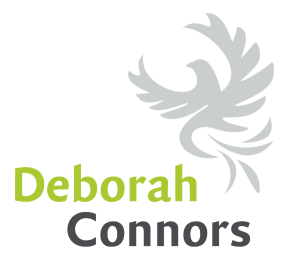
10 Feb Rowing A Weary Boat: Leading Your Team Through Rough Seas
Are you feeling as weary as I am? It’s the middle of winter in a pandemic, and shockingly (although I still can’t quite fathom it) this coming March will mark the 1-year anniversary of something that has shifted every aspect of our personal, work and social lives! Hands down, what I miss most in all of this is the in-person interactions; the connection, and the simple, casual nature of being around others.
I miss walking onto a stage or into a room of people, giving a keynote or workshop and making eye contact—reacting to a smile, calling on a question, laughing, and then taking a group picture afterward. I miss shaking hands and connecting with people that have similar goals. Yes, we do it on Zoom and we do it well, and I’m grateful for that, but there is something about connecting at a conference or retreat, away from the office that is different.
And I know I’m not alone. So, I wanted to reach out to you today and just ask you how you are doing? It’s been a long haul of reinventing ourselves, our teams and our businesses, and some days it feels a bit like being adrift in a boat…a weary one. There are days when we get it right, and days where it seems we’re paddling aimlessly, totally off-course. You might be tired of riding through these unchartered waters, but since we haven’t yet reached the other shore (if you’re like me), you’re still so darn grateful to have a seat in something that floats … you keep going!
Sometimes you just need to rest your oars for a bit and reflect on what to do next. How can you keep your team energized and well, and positive, and keep them rowing toward dry land when you don’t always feel like you have the energy to keep rowing yourself?
I’ve compiled some of my tried & true practices to help you energize your team and keep things positive and effective. There may be several other things you have to worry about right now to keep your business afloat, but having a positive and resilient team needn’t be one of them!
And remember…we will reach the other side. I’ve been in a Weary Boat before – you just keep paddling, raise your face towards that bright horizon, and know that one day you’ll look back on the gloomy seas you’ve sailed, and think to yourself: “We actually fared well.”
I think we’ll all find satisfaction in what we learn through this pandemic; in the resilience we garner, the strength and creativity we muster, and the stories we’ll have for our grandchildren down the road! And all those people you’re leading—they’ll notice too!
Leading Positive Teams
Practice #1: Shift Your Conversations, Shift Your Team
Did you know that the most effective teams have five positive interactions for every negative one? Do you know what the ratio for most teams is? It’s only 1:1. Increasing the number of positive interactions will increase the effectiveness of your teams. In one team I worked with at that 1:1 ratio, the group had gotten into the habit of responding negatively to every suggestion. What it looked like is this: In a meeting, someone would say “Hey, I have this great idea! Why don’t we try it this way?” only to get one of three responses: 1) “The problem with that is…,” 2) “That won’t work because….,” or 3) “Because we’ve always done it this way…” No matter which one of these responses came out, it was negative. It effectively shut down the other person’s positive suggestion. The team didn’t even recognize that this was happening. It just gradually crept in.
What did we do? We had a retreat and we had some fun brainstorming and writing down on sticky notes all of the negative responses that had crept into the vocabulary. We put them up on a white board talked about them. Then we put them in a jar and symbolically “put a lid on them.” That is where they stayed. Things got better after that; back to the more positive team that existed before, because we had brought some awareness to the issue. People would catch themselves part way through a negative sentence, and change their response to something like “That’s interesting. Let’s do some research on that.”
You can carry out this process online using JamBoard or ask people to respond to an email survey and then put the answers onto a virtual white board to discuss. Try holding a retreat where everyone is apart but outside of their regular office somewhere. Maybe on a beach (I live on the west coast; I know this won’t be possible everywhere), in a different room in the house, or in a coffee shop (if that is possible right now where you live), just to break the monotony of sitting in the same chair at the same desk (weary boat) as they have been.
Practice #2 Design Positive Meetings
How positive are your meetings? Do people look forward to them or dread them? In what ways can you develop practices that improve their positivity and effectiveness? Here are a few ideas:
- Start with a win. Ask each team member to share one personal or team “win” from the past week or month. For example, your team may have landed a new contract, finished a project, or developed a new practice that is making work more effective in some way. An individual may share that they have reached a new fitness goal, received a promotion or bought a house. Whether it’s a team win or an individual win, it doesn’t matter. The act of sharing these positive happenings sets a positive tone for the meeting and takes very little time.
- Begin with an inspiring story. People love stories. As the chair or team leader, think of a positive or inspiring story that relates to the topic of your meeting, or the challenge you may be discussing and share that story as your introduction. People often forget facts, but they remember stories, and the story jogs their memory of the fact or challenge you may be presenting.
- Lead into your meeting with a round of gratitude. Ask people to note one thing they are grateful for today. In my experience, when people do this, they often mention other team members. E.g. “I am grateful for Lynette’s assistance yesterday on that project so that we could finish it on time.” When you develop this as a regular practice it will change the culture of your meetings.
- Share the role of chairing your meetings. Having a different person chair the meeting each week or month empowers people and creates more ownership in the success of the team.
- Develop a message board online, or eventually back in your meeting room or lunchroom where employees can write brief stories about other teammates that went above and beyond the call of duty to help their colleagues.
What set of team practices can you strengthen or develop to improve positivity and resilience in your team?
Practice #3 Use Transformational Questions
A transformational question is one that creates a new vision by inspiring you to:
- Think differently,
- Take on a new challenge and/or
- Get engaged in creating and achieving a shared vision.
When you’re dealing with a challenge, or striving to achieve a new goal, sometimes it is easier and more powerful to come up with a question that will move you forward than it is to try to come up with an answer directly. Each situation warrants its own transformational question, and you will need to come up with the question that most inspires you or your team, but here are some questions that have effectively been used to stimulate thought:
- What is the most powerful action we can take right now?
- What do we believe in?
- Where are we? Where do we need to go?
- How can we finish this project with a profit?
- Who are we when we are at our best?
- What do we want our culture to be?
- What does the world need of us?
- How do we work with what is available?
- How can we give up needing to compete?
- How can we best offer this work?
Higher performance is not just enhanced by a more positive team culture, it requires it.
Now, it’s your turn. Based on these examples of positive team practices, how can you change the way you lead your next team meeting or project to inspire your team to greatness? And if you come up with a great idea not listed here, please share it with us!
Follow this blog for more ideas on creating your better place to work.
How’s your resilience these days? Book Deborah for a workshop with your team on The 3R’s For Teams During COVID-19: Resilience, Reinvention & Reflexivity.
What if you could learn to fuel meaningful engagement while energizing people to solve problems? Join us for our upcoming Conversations Worth Having At Work Bootcamp, which will explore how to use Appreciative Inquiry (AI) to do just that!
Need something that is self-directed? A course you can work through at your own pace? Explore our new 10-module Leading A Better Place To Work course. Do it independently, or register your whole team and work through it together.
About Deborah Connors and Well-Advised Consulting
A captivating speaker, storyteller, author and workplace coach, Deb researches the latest breakthroughs in organizational health around the globe. She is the founder of The Better Workplace Conference, a national conference in Canada that she led for 17 years. She teaches leaders how to create great cultures.
Photo by Kelli McClintock on Unsplash

